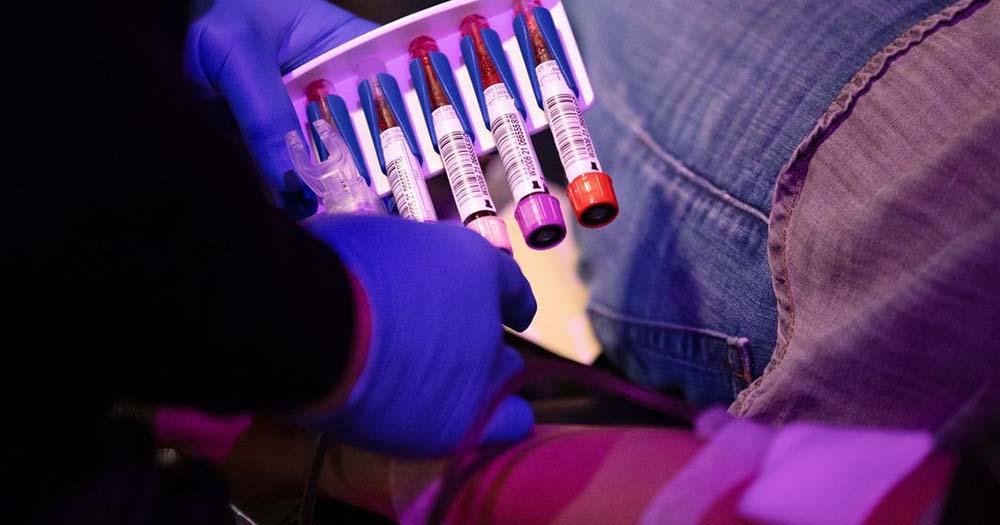The US Food and Drug Administration updated their official blood donation guidelines on Thursday, May 11, to accept donations from more gay and bisexual men and other men who have sex with men (GBMSM) in monogamous relationships.
The new US federal policy lifted the previous restrictions which prohibited blood donations from most gay and bisexual men or other men who have sex with men. The guidelines, which were last updated in 2020, required men to abstain from having sex with other men for three months prior to donating.
The new screening process invites all donors, regardless of sexual orientation or gender, to complete a questionnaire about their recent sexual history to determine their eligibility. The “individual risk-based questions” are the same for every blood donor. This model follows Canada and the United Kingdom which have adopted similar approaches in recent years.
These questions will be the same for every donor, regardless of sexual orientation, sex or gender. Blood establishments may now implement these recommendations by revising their donor history questionnaires and procedures.
— U.S. FDA (@US_FDA) May 11, 2023
In addition to sexual history, potential donors will be asked about any injectable drug use, recent tattoos, and piercings which may contribute to the spread of blood-borne infections.
Kate Fry, Chief Executive of America’s Blood Centres, says, “This shift toward individual donor assessments prioritises the safety of America’s blood supply while treating all donors with the fairness and respect they deserve.”
Under the new policy, all donors who have had sex with multiple partners or anal sex with a new partner within the past three months will still be asked to wait to donate. Anyone who has previously tested positive for HIV will remain ineligible to donate.
BREAKING: FDA finalizes Move to Recommend Individual Risk Assessment to Determine Eligibility for Blood Donations.
"Under the final guidance issued today, all prospective blood donors will answer a series of individual, risk-based questions to determine eligibility."
— Tony Morrison (@THETonyMorrison) May 11, 2023
Dr. Peter Marks, director of the FDA’s Center for Biologics Evaluation and Research, said, “The implementation of these recommendations will represent a significant milestone for the agency and the LGBTQI+ community.”
He added, “The FDA has worked diligently to evaluate our policies and ensure we had the scientific evidence to support individual risk assessment for donor eligibility while maintaining appropriate safeguards to protect recipients of blood products.”
Blood donation restrictions were initially implemented during the AIDS epidemic to protect the blood supply from HIV. These discriminatory and outdated policies limited the nation’s blood supply and were unnecessary since blood banks routinely screen blood donations for HIV.
LGBTQ+ activists and health organisations including the American Medical Association and American Red Cross have long called for these changes. While the new guidelines are a step in the right direction, unnecessary barriers still exist.
Placing potential blood donors taking PrEP in a separate line from every other donor adds unnecessary stigma. The bias embedded into this policy may, in fact, cost lives. GLAAD urges the FDA to continue to prioritize science over stigma and treat all donors and all blood equally.
— Sarah Kate Ellis (@sarahkateellis) May 11, 2023
The new policy still precludes blood donations from anyone taking PrEP – an FDA-approved drug proven to prevent transmission of HIV infections. The agency says this policy is in place to avoid any delay in detecting the virus during blood screening. GLAAD, an LGBTQ+ advocacy group, said denying donors who are taking PREP from donating will add “unnecessary stigma” to donors.
© 2023 GCN (Gay Community News). All rights reserved.
Support GCN
GCN is a free, vital resource for Ireland’s LGBTQ+ community since 1988.
GCN is a trading name of National LGBT Federation CLG, a registered charity - Charity Number: 20034580.
GCN relies on the generous support of the community and allies to sustain the crucial work that we do. Producing GCN is costly, and, in an industry which has been hugely impacted by rising costs, we need your support to help sustain and grow this vital resource.
Supporting GCN for as little as €1.99 per month will help us continue our work as Ireland’s free, independent LGBTQ+ media.

comments. Please sign in to comment.